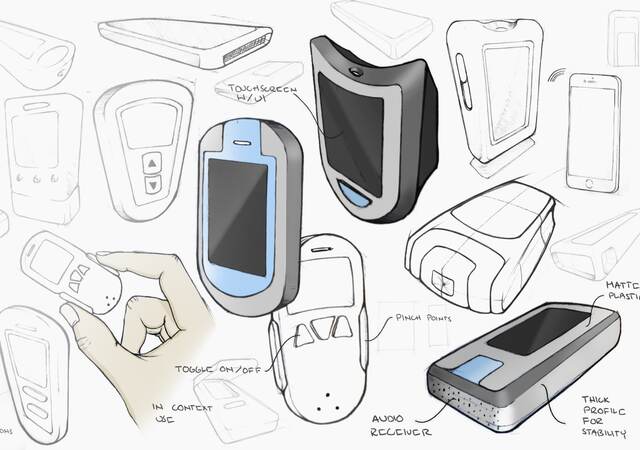May 14, 2023
By Jenny Collinson and Tamara Will
So you’re developing a medical product – does it matter where you market it or how it gets used? Would you expect to see differences in user needs, use environments, users, or use errors between different countries?
In this second blog of the series (Part 1 covers regional differences between usability test subjects in different countries), we explore some differences in healthcare systems and clinical practice that could have an impact on the use and development of medical devices.
Users: Healthcare professionals (HCPs)
Generally, everyone gets their diagnosis and/or treatment from an HCP, but the HCP job responsibilities can differ significantly between geographical locations. Our team has seen many cases where a client was surprised by which HCP was (also) responsible for a certain medical procedure. For example, in the Netherlands General Practitioners (GPs) routinely place intra-uterine devices (IUDs), whereas in other countries this is solely a gynecologist’s responsibility. Or, in the UK the most senior nurses can also perform routine colonoscopies independently, whereas in the US a colonoscopy would be performed by, or under the supervision of, a physician.
Even though these “other” individuals will likely be trained on performing these specific activities and/or medical procedures, they might have a different educational background and medical practice experience than the user group you originally considered. As such, it is important to understand the differences for both product design purposes as well as recruitment purposes when evaluating your product with representative users.
Moreover, even when HCPs do have the same job role, they might not use the same title. For example, in the US a doctor is called “physician” and in the UK they are called “consultant."
Clinical practice and procedures
The accepted ways of treating a medical condition also can very between geographical locations. If you design a product for a need in one location, that need may be different or not exist in another. There are many causes for this which can be related to training, product availability, and the availability of certain specialists, all of which can influence the use of a product and its relevance in any given market.
Regulatory approvals and budgets can hugely impact the availability of equipment in hospitals and medical facilities. Understanding the equipment available to HCPs in different locations is essential to develop an appropriate device that fits with the current clinical workflow. For example, you might have competitors in Europe that are not available in the US. As such, if you only evaluate your product in the US, you might miss negative transfer effects of these other competitor devices.
Access to treatment and support
Depending on the geographical location, healthcare is delivered very differently. A well-known example is the availability of healthcare insurance and the amount of money that a patient has to pay for their treatment. Patients who have to pay a lot of money for their medication and medical products – which they often do not have – are more inclined to reuse needles, use a device that is not fully intact, or use products that are past their expiration date.
Thinking of physical access, patients might also be responsible for more interactions with the device, depending on how far away support is available. For example, in rural areas, patients might have not as easily access to in-person support from HCPs when they run into an issue with their home-use device (home hemodialysis machine, injection device, etc.) because of the availability of HCPs and the distances involved. As such, these patients would therefore be more dependent on support that can be delivered remotely while the patient operates the product at home. And when remote support is not possible, the treatment delay might be much longer than in other areas.
Research methods to explore geographical differences
Too often some of the inconsistencies between geographical locations are identified late in the development process, resulting in products not suitable for their intended market(s) or failed usability studies.
User research and early-stage formative studies can help answer some of the unknowns when working on products intended for launch in multiple markets, enabling the designers and manufacturers to develop products the meet the users’ needs in all markets.
Jenny Collinson is Research Director and Tamara Will is Senior Human Factors Specialist at Emergo by UL.
Request more information from our specialists
Thanks for your interest in our products and services. Let's collect some information so we can connect you with the right person.






